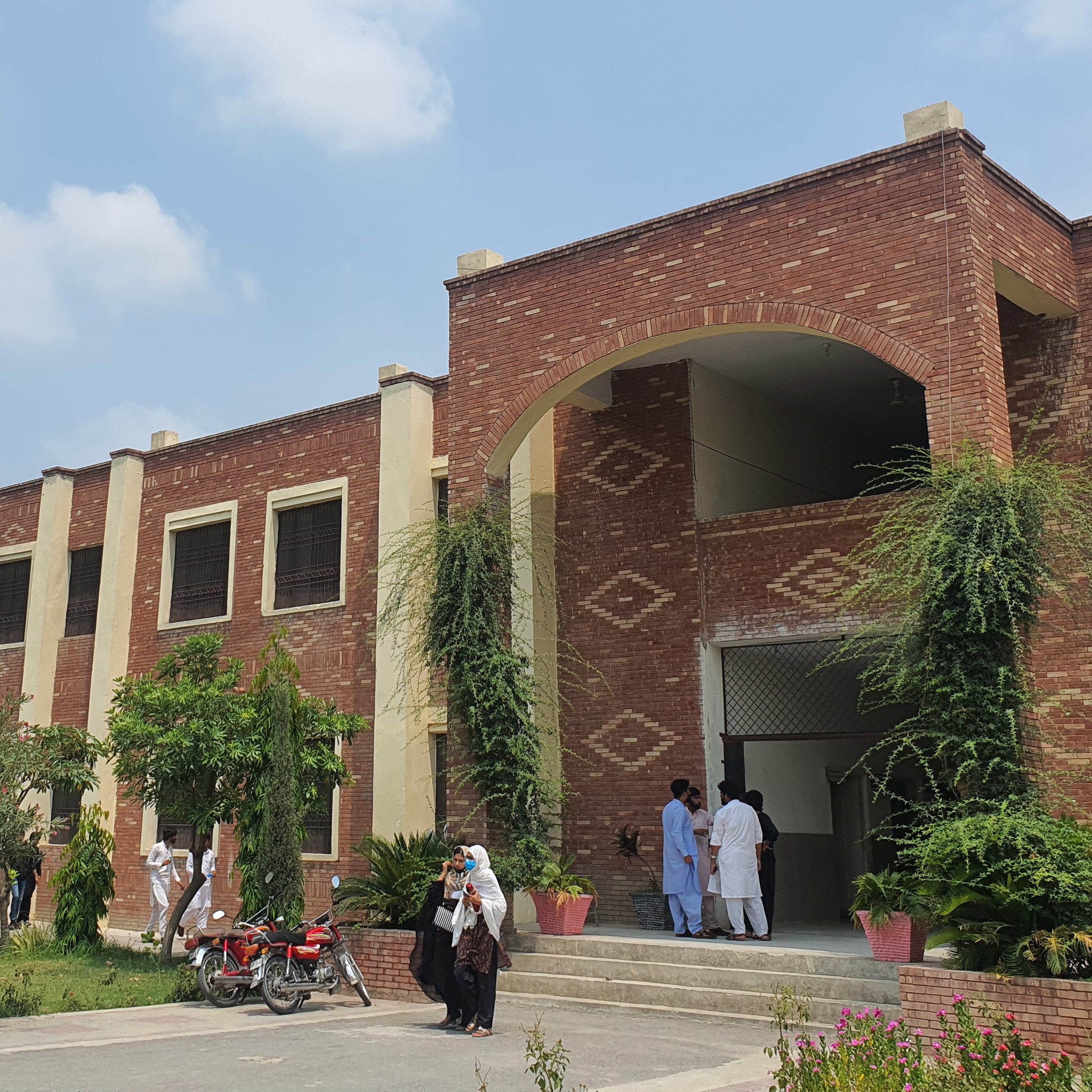At the start of its second academic session, Thal University Bhakkar is facing significant challenges. Last year, the university offered admission in 20 subjects, but this year the Higher Education Commission (HEC) has restricted admissions to only ten subjects. Moreover, no admissions will be granted for Master’s degree programs this year.
The university in Bhakar was established in 2012 as a sub-campus of the University of Sargodha. In the beginning, it offered around nine graduate programs.
In 2014, the number of programs offered increased to 40. These included BS programs, MSc and MA in various subjects, and MPhil classes in Chemistry, Botany, Mathematics, Economics, Zoology, and Urdu.
In 2019, the Punjab government decided to establish Thal University in Bhakkar. As part of this decision, the sub-campus of Sargodha University, covering an area of 108 kanals, was designated to be converted into the city campus of Thal University. At the same time, additional land was allocated for the main campus.
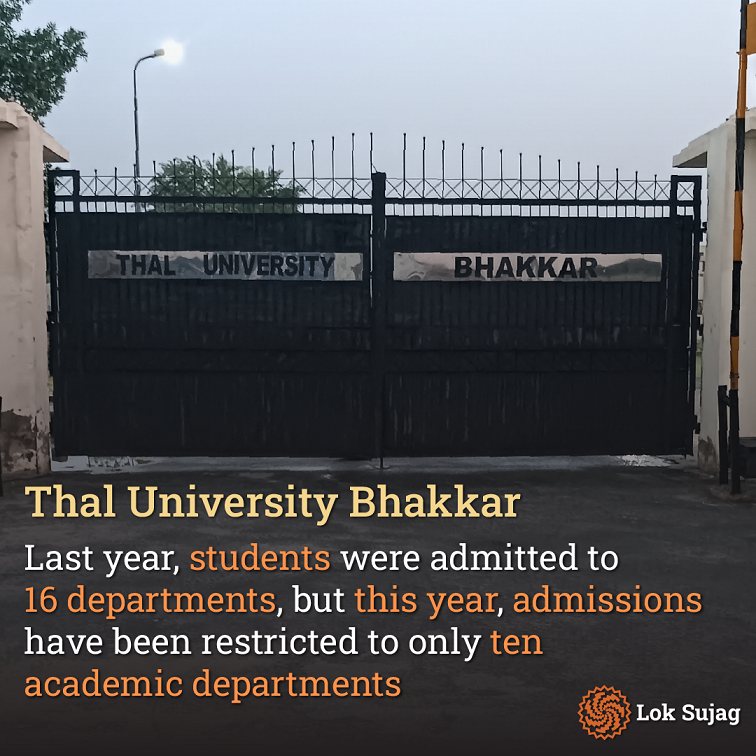
The Board of Revenue transferred 261 acres of land in the suburbs of Sarai Mahajir to the Higher Education Department for Thal University. However, the construction work on the university did not commence on the allocated land.
The establishment of ‘Thal University Bhakkar’ came into effect on February 9, 2022, after the approval of the Punjab Assembly. During the first session, the university offered admissions to students in 20 BS programs across 16 different departments.
This year, the HEC team visited the university and permitted admissions in only ten academic departments. The other departments were not fulfilling the necessary conditions, leading to this decision.
In 2022, Thal University offered graduate admissions in various subjects, including Computer Science, Information Technology, Software Engineering, Economics, Physics, Chemistry, Botany, Mathematics, English, Islamic Studies, Urdu, Physical Education, Communication and Media Studies, Education, International Relations, Psychology, Social Work, and Sociology. In addition to the graduate programs, admissions were also available in BBA and B.Com.
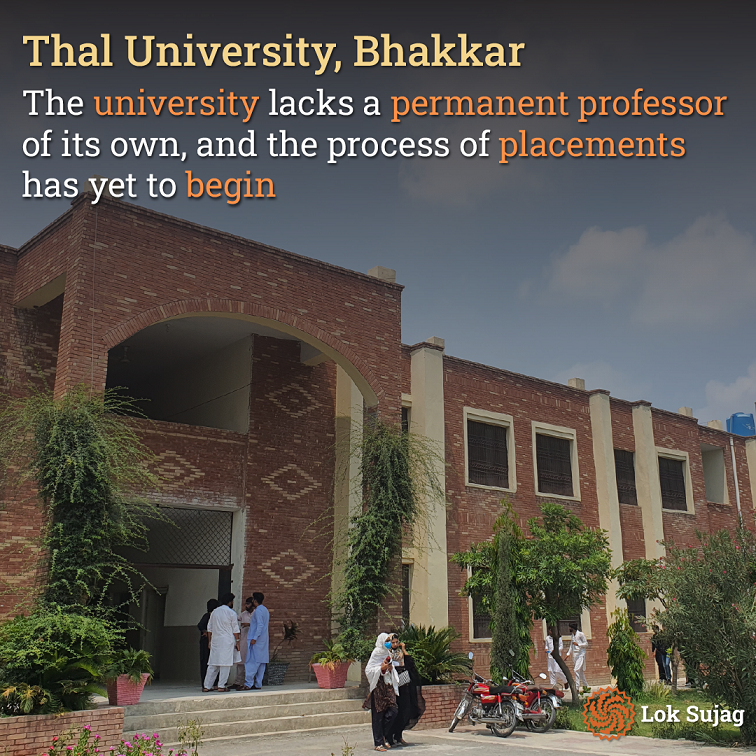
This year, admissions were not allowed in Urdu, English, Sociology, Social Work, International Relations, Media Studies, Economics, Islamiat, and Health and Physical Education at Thal University. However, students admitted to these subjects last year will complete their degree here.
The university administration is trying to start admissions again in Urdu, Mathematics, and Physical Education, but no official announcement has been made yet.
The management of Thal University has attributed this situation to the relevant bureaucracy and the provincial government.
On the condition of anonymity, a senior university official informs Lok Sujag that the rules governing the appointment of permanent faculty members and other related matters have yet to be approved. These rules and regulations require approval from the Governor of Punjab.
According to him, Thal University still needs to appoint a permanent vice-chancellor. The current VC of Sargodha University, overseeing the matters from a distance, cannot give proper attention to Thal University
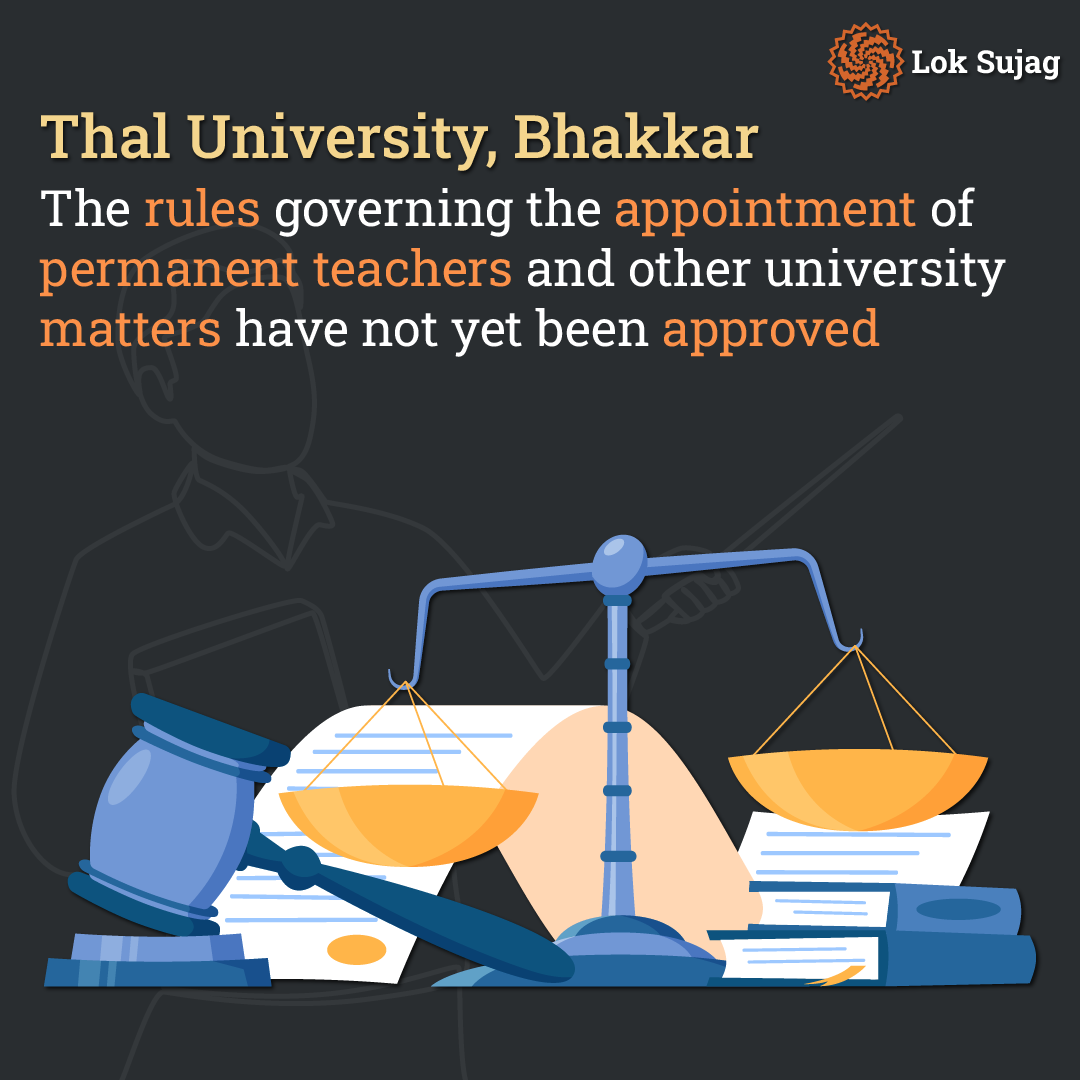
On the condition of anonymity, a professor at Thal University tells Lok Sujag that many teachers and faculty members were transferred away from Sargodha when the sub-campus was established in Bhakkar. However, after the approval of Thal University, they returned to the main campus.
He says that only 30 faculty members (teachers) showed up to work here, and they were hired on deputation. Thal University currently does not have a single permanent professor of its own, and the process of placements has not yet begun. As a result, visiting professors are teaching students of all subjects.
According to him, the main reason for not obtaining admission permission for ten subjects is the lack of permanent teachers (faculty members). The absence of a permanent Vice-Chancellor has worsened the university’s affairs.
Admission in Urdu, Economics, and Physical Education has also been halted by HEC, despite having one permanent professor in each of these subjects. However, efforts are underway to resume these three departments, and preparations for permanent appointments in these fields have been made.
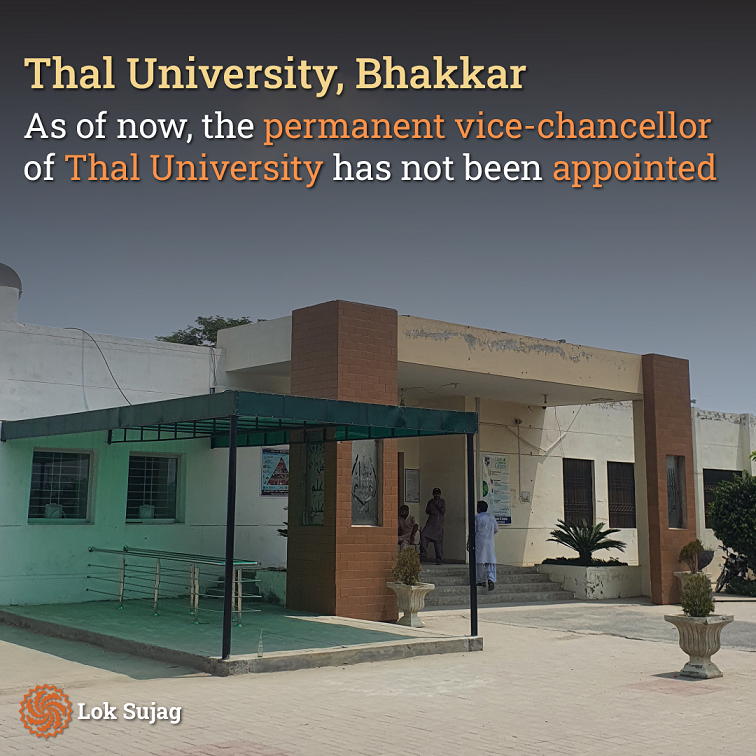
He mentions that in this regard, the registrar is in contact with relevant institutions, including Thal University and HEC.
Faisal Shehzad, a student in the second semester of BS Urdu, comes from a family where his father is a pensioner. He explains that students like him do not have the means to study anywhere else except Thal University, which is close to their area. The subjects that are planned to be closed, except for economics, fall under arts and social sciences. These subjects have the highest enrollment of students from rural areas.
He expresses that this situation is even more disheartening for female students who aspire to pursue higher education in the city because they seldom receive permission to study in other cities.
Fifty-year-old Mohammad Khan runs a grocery shop in Bhakkar’s Alimabad neighbourhood. He made sacrifices, going hungry at times, to make it possible for his son, Muhammad Owais, to complete his MSc in Sociology from Punjab University, Lahore.
Muhammad Khan’s daughter has now completed her MSc from Thal University. He expresses that if there was no university sub-campus in Bhakkar, it would have been challenging for him to educate his daughter. With limited resources, sending children to Lahore or Islamabad to cover educational expenses is difficult.
University officials accuse the provincial bureaucracy of ‘bias,’ stating that new universities in big cities receive grants of up to Rs 50 crore, while Thal University has been allocated only Rs 10 crore.
Additionally, the non-appointment of permanent professors is also a significant problem here.
Also Read
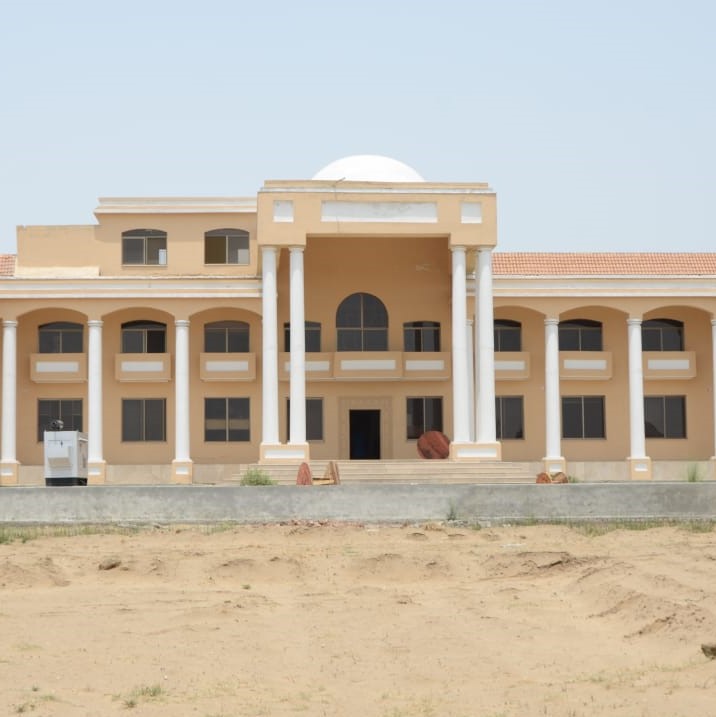
Barani University, Attock sub-campus closure: Hundreds of students denied education opportunities
He emphasises that the university is not receiving sufficient funds. Being a government institution, they cannot impose high fees on the students, and there are no provisions to generate financial resources from elsewhere. The future of the children from this backward area relies on local educational institutions like Thal University, so the government must urgently address the problems faced by the university.
Maulana Safiullah, a member of the Thal University syndicate, expresses his concerns, stating that after the first meeting, he has not been invited to any subsequent meetings nor kept informed about the current affairs of the university.
Former Vice Chancellor and current syndicate memebr of Thal University Bhakkhar says that people who are establishing universities one after the other are responsible for the problems being faced by the university. HEC does not provide funds to the newly formed universities for the first three years.
He explains that initially the entire responsibility of funding the university rests with the provincial government. The service rules of several new universities, including Thal University, are yet to be approved by the Governor. The Syndicate meeting is presided over by a minister but the ministers have no idea about the affairs of the university.
Professor Hasan Amir said that whatever decisions are made in the syndicate meeting remain on the files. Often the secretaries or representatives of the Ministry of Finance, Law and Higher Education are involved in approving all the issues, but later these people do not make sure implementation of the recommendations and this is the biggest problem.
Published on 8 Aug 2023
